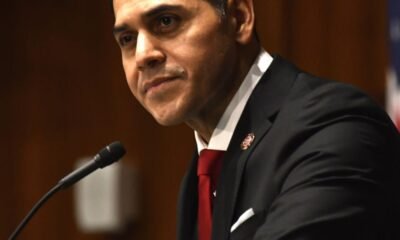Alternative medicine
Arizona Set to Pioneer a Sage and Scientific Revolution in Mental Health

Recently, the Arizona House Appropriations Committee approved HB2871, allocating up to $5 million for clinical research on ibogaine, an emerging plant medicine. Former U.S. Senator Kyrsten Sinema supports the initiative and has committed to raising an additional $5 million for the proposed research. This bill aims to position Arizona at the forefront of innovative solutions to the mental health crisis, leveraging thousands of years of ancient knowledge.
Ibogaine is a psychoactive substance derived from the iboga tree. Traditionally used in West African healing practices, it serves medicinal and ritualistic purposes. This plant is not merely a psychedelic but an entheogen, which includes empathogens—substances that enhance empathy—and enactogens, which facilitate introspection and healing of past traumas. Researchers like Jamie Wheal describe these substances as a bridge across time and cultures, inviting personal healing journeys.
Pardis Mahdavi, a medical anthropologist with 25 years of experience studying culture, health, and society, acknowledges the tensions between scientific perspectives and traditional healing practices. The passage of HB2871 follows that of SB1555, which established a statewide committee for overseeing psychedelic-assisted therapy in Arizona. Another related bill, HB2762, allows for ketamine-assisted therapy, leading to the establishment of numerous clinics across the state. Collectively, these legislative efforts reflect a broader national movement to explore alternative mental health treatments and address the opioid crisis.
HB2871 is particularly significant as it targets veterans, a population highly susceptible to PTSD and treatment-resistant depression. Recent scientific studies reinforce the historical wisdom surrounding ibogaine. Research from the National Institute of Health shows that ibogaine significantly alleviates withdrawal symptoms in over 80% of participants, with more than half maintaining full abstinence from substance use a year later. A complementary study from Stanford Medical Center reported an 88% reduction in PTSD symptoms and an 87% decrease in depression.
Such compelling evidence explains why many individuals, particularly veterans battling addiction and depression, are seeking treatment across the border in Mexico. Advocacy for plant medicines has garnered bipartisan support, even reaching unconventional figures. Robert F. Kennedy Jr., shortly after his appointment by Trump to lead the Health and Human Services, expressed strong backing for the legalization of psychedelics, energizing researchers and advocates nationwide.
The research supported by HB2871 is noteworthy for its cultural sensitivity and historical respect. Advocates like Sinema emphasize the importance of understanding the plant’s context while exploring its therapeutic potential. Reflecting on past experiences with traditional practitioners, Mahdavi recalls a poignant phrase: “Hope is a memory of the future.” This notion resonates in a world facing profound challenges, offering inspiration for healing by drawing upon rich historical traditions to shape a promising future.
Pardis Mahdavi is an American scholar and former president of the University of La Verne.

















